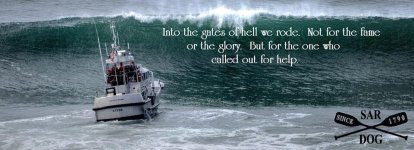My father in law was a Coast Guard Lt. during WW 2.
He had several assignments the last being on LST 765. He was on board for the launch in September 1944. I found the following calendar he kept for the year of 1945. Please look at the time from May 15 to Mid June at the number of air attacks 765 endured














He had several assignments the last being on LST 765. He was on board for the launch in September 1944. I found the following calendar he kept for the year of 1945. Please look at the time from May 15 to Mid June at the number of air attacks 765 endured














Last edited:


